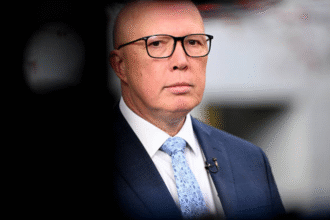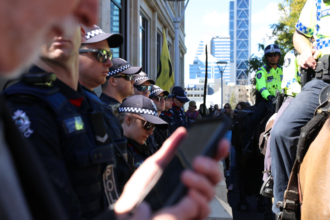Major Oversight Threatens Party's Council Representation
A central administrative blunder that has disqualified over 100 candidates from competing for council seats has the Liberal Party in New South Wales (NSW) scrambling. Considered a “monumental stuff-up,” this inability to satisfy a required election nomination date has significantly affected the party. The supervision may result in losing about 50 council seats, depriving some long-serving politicians of employment and leaving eight councils without a single Liberal Party candidate to vote for.
Administrative Blunder and Accountability
State party director Richard Shields has apologised for the mistake and blamed administrative supervision for the blunder. Shields said the leading cause of the delay in the required nomination documentation was “limited resources.” Many party members have yet to find great favour in this justification. The state legislative leader, Mark Speakman, has called the circumstances “probably the worst mismanagement” in party history. Speakman underlined that Shields should have asked for more tools to prevent such a mistake and judged her stance unacceptable. Shields has been requested to therefore resign from his position.
Candidates and Councillors Affected
There are significant consequences from this administrative blunder. The Liberal Party is short by 136 candidates of a complete ticket, according to election analysts; this shortfall includes 38 existing councillors who missed the ballot. Among those impacted is Paul Ell, a current Shoalhaven City Council member preparing for a mayoral bid. “It’s upsetting and destructive for us, but most of all, it’s bad for local democracy in the community,” Ell says, expressing his annoyance. The loss of these candidates affects the people personally engaged and the party’s representation and power across several councils.
Impact on Long-Term Politicians
For long-standing politicians especially, the consequences of the missed deadline are dire. About 90 kilometres south of Sydney, in Wollongong, John Dorahy’s 13-year council career has been almost cut short. Although Dorahy expressed his dismay, he still hopes officials will take some consideration. Though he hopes otherwise, the NSW Electoral Commission has taken a strong stance as the law forbids the receipt of late nomination forms or changes to entered forms after the deadline has passed. This rigidity emphasises the difficulty of fixing the error and the party’s difficulties handling the matter.
Political Reactions and Future Implications
Senior Liberal MPs have become entirely enraged at the monitoring. The deputy parliamentary leader Natalie Ward has freely voiced her annoyance, calling the circumstances a “monumental stuff-up.” Another top party official has called the incident “abysmal,” saying, “It’s disastrous. I have never seen something so horrible in thirty years of public life. The strong responses capture the seriousness of the matter and its likely influence on the party’s reputation and potency in the forthcoming elections.
Apology and Repercussions
Richard Shields has formally apologised for the incident, saying, “On behalf of the secretariat, I would like to apologise to Liberal-endorsed councillors that were not nominated and to the party membership more broadly.” This apology shows the party’s intention to handle the consequences while acknowledging the mistake’s seriousness. The Liberal Party will have difficulty controlling the effects of this administrative error. As they prepare for the next elections, they will have to figure out measures to restore their representation and win back the confidence of their people.
Apart from immediate losses, the occurrence has posed issues regarding the party’s internal procedures and resource control. The NSW Liberal Party must act to stop such mistakes in the future and rebuild its credibility in the view of voters as they negotiate the aftermath. The following weeks will be crucial in deciding how well the party manages this situation and lessens the effects on their chances of winning elections.








